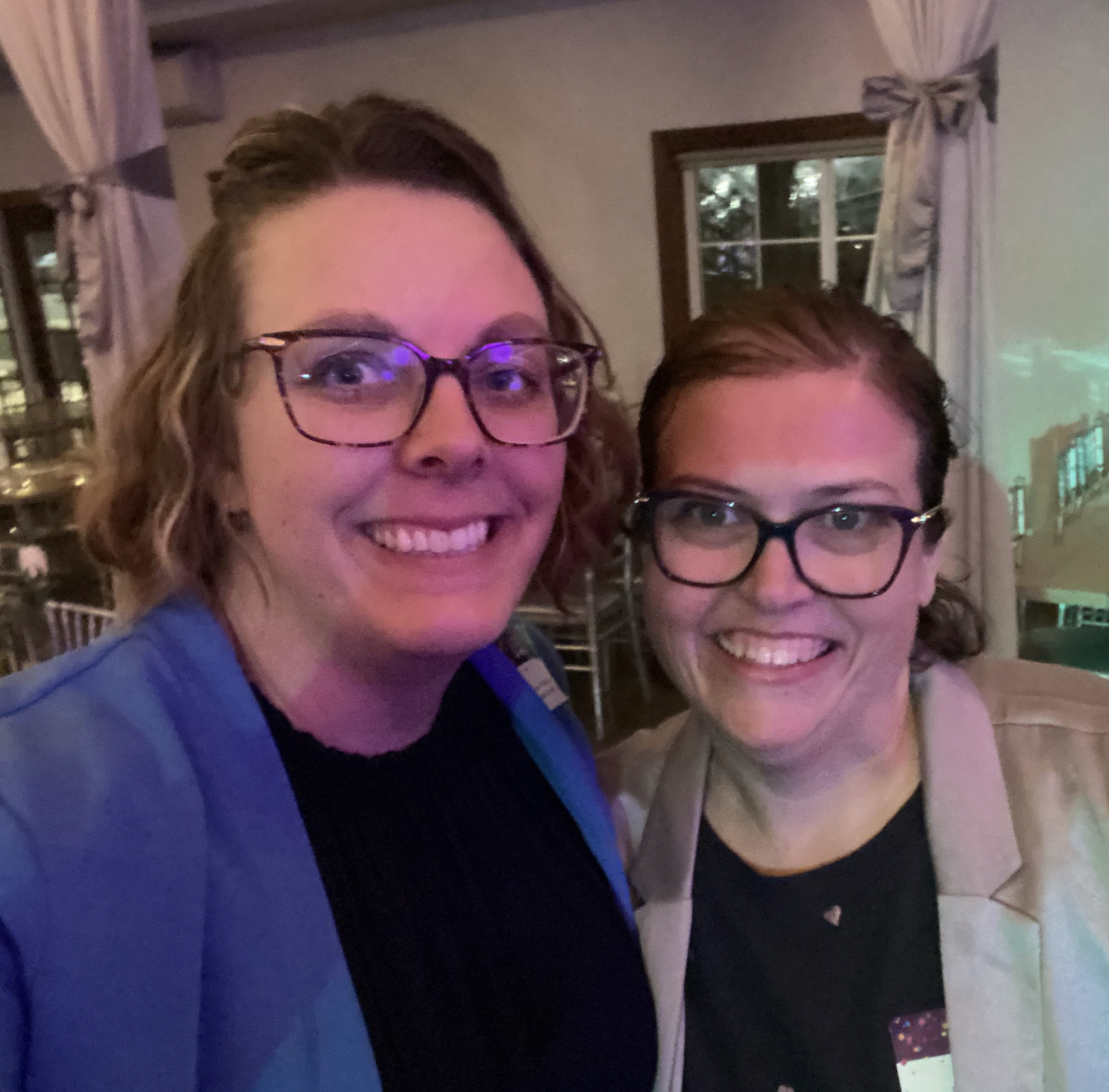Kate Feilmeier and Darlene Hillmar both work at the Children's Home Shelter for Family Safety (formerly Children's Inn). Feilmeier works as an outreach advocate, and Hillmar is the assistant program director. They sat down with Sioux Falls Simplified to talk about domestic violence and the upcoming Take Back the Night event.
Answers are edited for length and clarity.
How did you “get smart” about supporting victims of domestic violence? What led you to your current role?
Kate: I actually got into advocacy in college. I grew up in a home with domestic violence, so I've always had a passion for it.
- After I graduated college, I became a case manager – did that for about 10 months and then became a supervisor. Last August, I became the outreach advocate, and I've been in this role for a year (about six and a half years total at Children's Home).
Darlene: My degree is actually in elementary education. I wasn't familiar with this field at all, but I got started in this field when I lived in North Carolina for about a decade.
- I worked part-time at a local domestic violence shelter and learned a lot about the program. I developed a passion for it.
When I moved back to South Dakota I taught, but then I also got involved part-time here (at Children's Home) and really came to find out this is where my passion lies. I've also been here about six and a half years.
We’re all about simplicity here. Can you describe the significance of Domestic Violence Awareness Month in 10 words or fewer?
Hope for victims, hope for working ourselves out of a job.
What’s something that’s often misunderstood about domestic violence, and can you help us set the record straight?
Darlene: People will say, why did she (or the victim) go back, or why did she let this happen? It really should be a focus on why did it happen in the first place.
- That's probably one of the biggest things that a victim chooses to stay or chooses not to leave. There's so many nuances. Housing is hard to find, jobs are hard to find, maybe you have kids ... I think people blame the victim for staying or they get blamed for leaving.
- They get blamed a lot for things that aren't their fault.
Kate: Something I think is so not understood is that domestic violence is a lot of coercion or control – even if there isn't a physical aspect of it – and that is what makes it so hard to leave.
That's not what's portrayed in movies or anything like that. ... It's that power, control or manipulation that the abuser has done to trick (victims) into believing they need to stay or whatever it is.
- It isn't as simple as, "if he hit me, I would leave," or "if she hit me, I would leave." There's so much more intertwined with that coercion and control.
What's the scope of this issue? Can you help us understand how common this type of violence is?
Kate: An average of 24 people per minute are victims of domestic violence in the U.S., which is approximately 12 million people per year – so it's very prevalent.
- It has no, "oh it only happens to this demographic." It really happens to all demographics.
What are the warning signs? How can we help recognize when someone is in a violent relationship?
Kate: Everyone can get involved in prevention – anyone could dial 211 and get resources.
It's also important to know there's a lot of control and manipulation and continuing to show up even if it's six, seven, eight times that somebody left.
- On average it takes eight times for people to leave and leave for good.
Isolation is a huge red flag – so isolating the victim from their support system, the work, their friends, their family.
Financial control is also a big red flag – if someone doesn't have a say over their money.
What resources are available for families who might find themselves in a situation where they’re facing violence at home?
Darlene: They could certainly reach out to us. Our crisis line is 24/7 – they can call and talk with us (605-338-4880).
- There's also a national domestic violence hotline. Call 800-799-SAFE (7233) or text START to 88788.
Kate: Our services are all free – counseling services, court advocacy, assistance with protection orders. People can call anytime. We never close. We always have staff.
How can we help support the work you're doing?
Kate: We have "Take Back the Night," our big event that's put on by the Minnehaha County Family Violence Council – which is multiple agencies that work in the field, law enforcement, our agency, other advocacy agencies, state's attorney, victim witness advocates.
- That event is Thursday at 6 p.m. at the University of Sioux Falls Salsbury Science Center.
- It's a free event with a candlelight vigil, walk, and therapy dogs on the walk.
- We’ll have food. We’ll have music. We’ll have speakers. We’ll be recognizing an advocate and a survivor.
It's just a really great night that's meant for taking back the night meaning like taking back the nights of any events that were happening that were abusive or where they lost control – so they get to take back the night.
You can also support Children's Home Society by making a donation on their website here.


